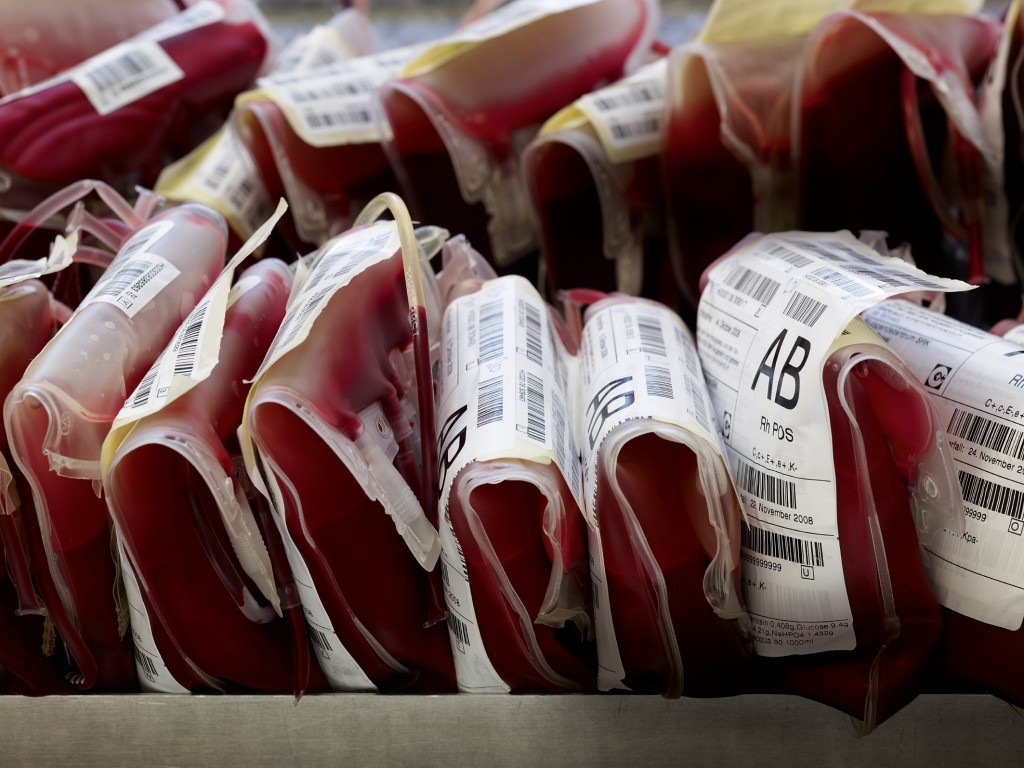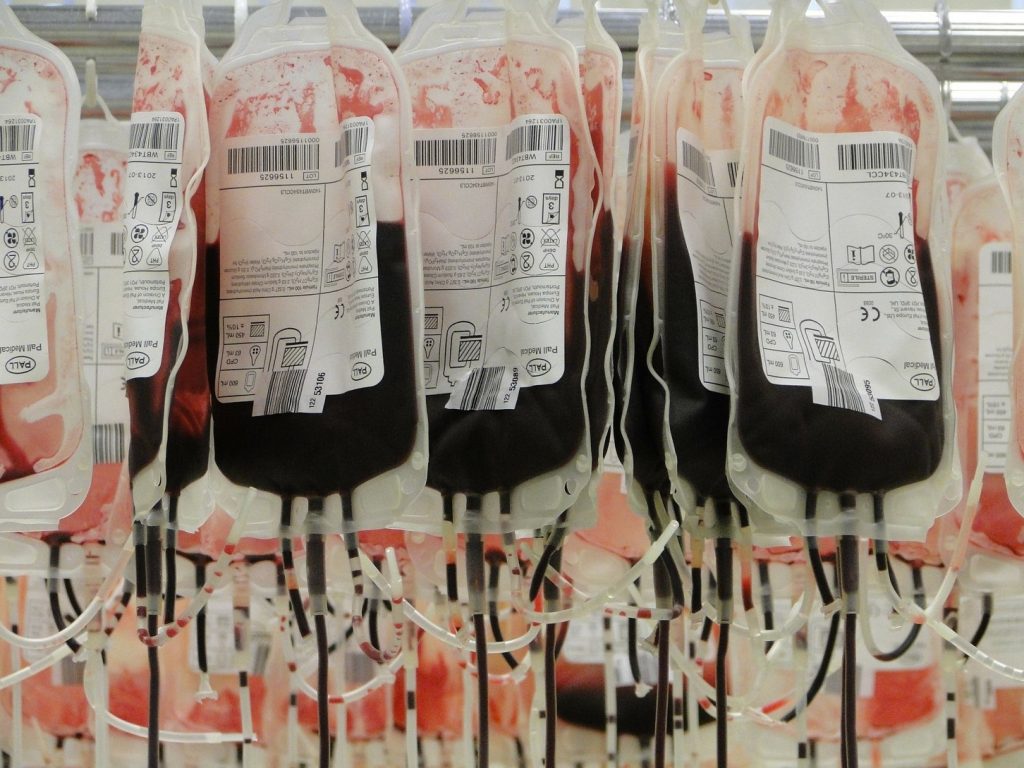Here are six reasons why you should do so:
- The need is great. Cancer patients are among the most common recipients of blood transfusions. But donations are also...
- You probably can. While donors must be at least 17 in most states, there’s no upper age limit for giving blood as...
- Older people can give blood more comfortably. Donors age 50 and older are less...
Why should I donate blood instead selling it?
Jun 10, 2020 · Why should people donate blood? Safe blood saves lives. Blood is needed by women with complications during pregnancy and childbirth, children with severe anaemia, often resulting from malaria or malnutrition, accident victims and surgical and cancer patients.
What conditions disqualify you from donating blood?
Why Give Blood Blood is needed every two seconds. About one in seven people entering a hospital needs blood. Blood is always needed for treatment of accident victims, cancer patients, hemophiliacs and surgery patients. Blood cannot be manufactured. Only 37 percent of our country's population is ...
What are the reasons why a person cannot donate blood?
May 19, 2021 · Why Blood Donation is Important – and Who Benefits Every two seconds, someone in the U.S. needs blood. Blood is essential to help patients survive surgeries, cancer treatment, chronic illnesses, and traumatic injuries. This lifesaving care starts with one person making a generous donation. The need for blood is constant.
What are the advantages and disadvantages of donating blood?
Jul 01, 2021 · Every year, June 14 marks World Blood Donor Day, which aims to raise awareness of the need for blood as well as for adequate infrastructure to facilitate blood collection and transfusion worldwide....

Why should people donate blood?
Safe blood saves lives. Blood is needed by women with complications during pregnancy and childbirth, children with severe anaemia, often resulting...
What happens when I give blood?
Whether you are a first-time or regular donor, the blood service must make sure that you will come to no harm by donating blood. This includes chec...
How much blood will be taken? Will I have enough?
In most countries, the volume of blood taken is 450 millilitres, less than 10 per cent of your total blood volume (the average adult has 4.5 to 5 l...
Is giving blood safe?
Yes. Remember that you will only be accepted as a blood donor if you are fit and well. Your health and well-being are very important to the blood s...
Does it hurt?
Just squeeze the inside of your elbow tightly and you will get a quick idea of what the needle feels like. All you should feel is a gentle pressure...
Who can give blood, and how often?
The criteria for donor selection varies from country to country, but blood can be donated by most people who are healthy and do not have an infecti...
Who should not give blood?
The blood service is concerned with the welfare of both the blood donor and the recipient (patient). Donors are often asked not to donate blood fo...
Can I give blood after vaccination against SARS-CoV-2?
Consistent with current general global practice, recipients of SARS-CoV-2 vaccines that do not contain live virus may donate blood if they feel wel...
How will I feel after giving blood?
You should feel great for selflessly giving someone the gift of blood.
Why is blood important?
Blood is essential to help patients survive surgeries, cancer treatment, chronic illnesses, and traumatic injuries. This lifesaving care starts with one person making a generous donation. The need for blood is constant. But only about 3% of age-eligible people donate blood yearly.
What percentage of blood is donated to the Red Cross?
The Red Cross provides about 40% of our nation’s blood and blood cell components to donors. Your blood donations are used for patients in need of surgery, cancer treatment and transfusions for blood loss from traumatic injuries.
How many units of plasma can you donate?
One donation provides up to four units of plasma for patients in need. As you can see, blood donations are one of the most important things you can do to help others in need. There is no substitute for blood, and it can’t be manufactured. Every day, blood donors help patients of all ages from all backgrounds.
Why do people need platelets?
Platelets help your body create clots to stop bleeding. Platelet donations are critical for patients who are fighting cancer, chronic diseases and traumatic injuries. The collection process is unique and a bit different than the whole blood donations, both arms are involved.
What is plasma donation?
Plasma Donation: During a plasma donation, called plasmapheresis, blood is drawn from one arm and sent to the centrifuge that separates out the plasma. The red blood cells and platelets are then returned to you in the same arm.
What is the CMV virus?
CMV is known as the cytomegalovirus. CMV is a flu-like virus to which an estimated 85% of adults in the United States will be exposed by the age of 40. This means that the majority of adults in the United States carry CMV antibodies. Unfortunately, these antibodies might pose a danger to particularly vulnerable patients.
How often can I donate blood?
Almost anyone can give blood. Each country or region has its own specific criteria. In general, all healthy adults can donate blood several times a year. The only restrictions concern age, weight, foreign travel in the last few months or years, specific medical conditions, and medication.
What is the process of giving blood?
This means that all the components of blood—red blood cells, plasma, and platelets—are collected simultaneously and then separated, as needed, in the laboratory.
When is World Blood Day?
Every year, June 14 marks World Blood Donor Day, which aims to raise awareness of the need for blood as well as for adequate infrastructure to facilitate blood collection and transfusion worldwide. Discover 20 good reasons to take a few moments, whether once or several times a year, to make a small gesture that can save many lives.

Popular Posts:
- 1. how do i donate my hair to pantene
- 2. why should you donate to the salvation army
- 3. where can i donate used medical supplies
- 4. where can you donate stuffed animals in ri
- 5. where to donate area rugs near me
- 6. where to donate medical wheel chair
- 7. where to donate leather garments
- 8. how to enable donate on twitch ps4
- 9. where to donate children's toys
- 10. where to donate computers 45440